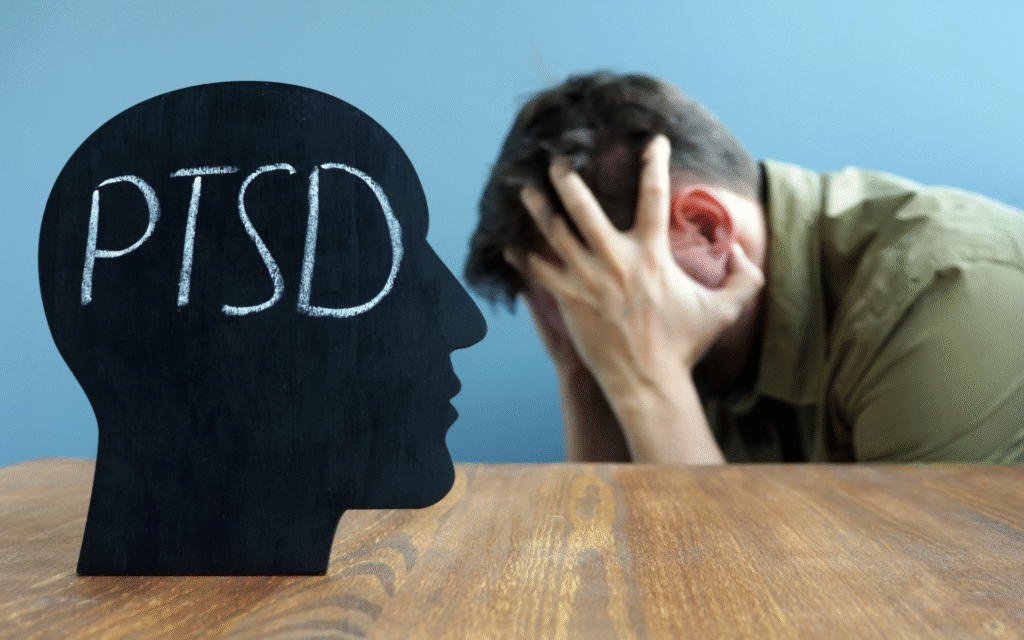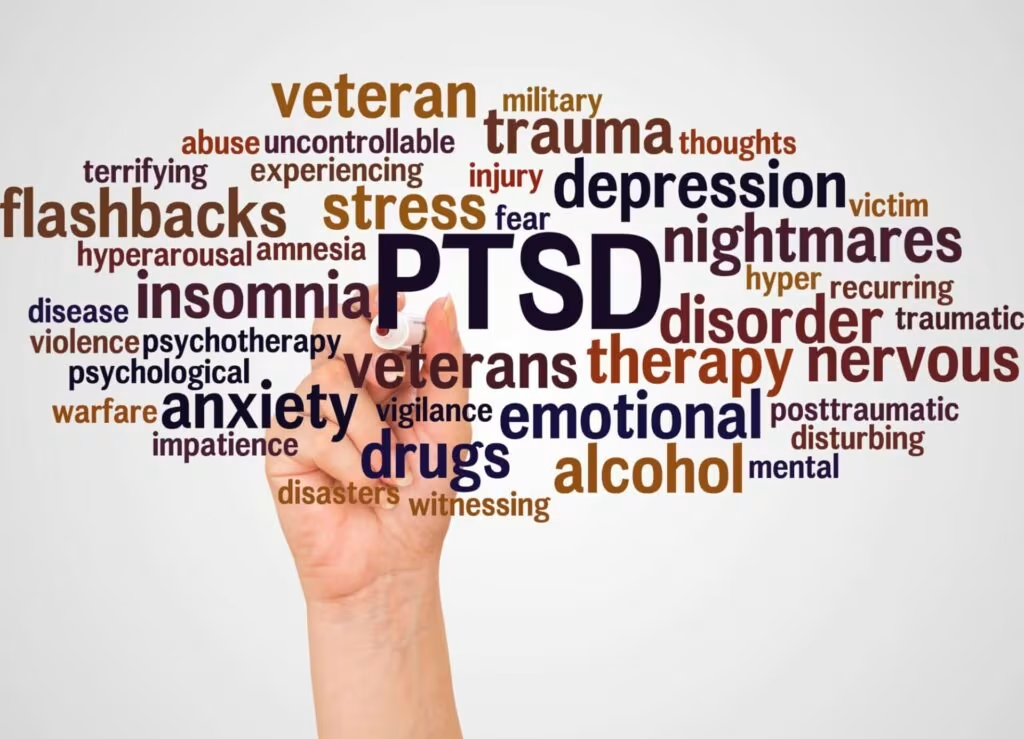Post-Traumatic Stress Disorder (PTSD) affects millions of people worldwide, and Singapore is no exception. Understanding the available treatment options and support systems can be the first step toward recovery for those struggling with the lasting effects of trauma.
This comprehensive guide explores everything you need to know about PTSD treatment in Singapore, from recognizing symptoms to finding qualified professionals and evidence-based therapies.
Read more: Which Psychologist in Singapore Should You Consider? (Sort by Reviews)
Understanding PTSD and Trauma

Trauma occurs when individuals face unexpected, overwhelming, or life-threatening events that exceed their ability to cope effectively.
These experiences can be direct (happening to you) or indirect (witnessing something happen to others), and they create lasting impacts on the nervous system, brain, and body.
PTSD develops when the natural stress response following a traumatic event fails to resolve normally.
Instead of the typical healing process, individuals remain trapped in a state of emotional and psychological distress that can persist for months or years.
Research conducted in Singapore shows that up to 13% of road traffic accident survivors experience acute stress disorder within one month, with up to 78% potentially developing PTSD without proper intervention.
The condition fundamentally alters how the brain processes threat and safety. The prefrontal cortex, responsible for executive functioning, becomes underactive, while the amygdala (the brain’s alarm system) becomes hyperactive.
This creates a persistent state of alertness where individuals may perceive danger even in safe situations.
This might help: Which Psychiatrist in Singapore Should You Consider?
Types of Trauma and Related Conditions

Understanding the different manifestations of trauma helps in recognizing when professional support is needed.
Acute Stress Disorder
This condition emerges within four weeks following a traumatic event and shares similarities with anxiety disorders.
Individuals experience excessive worry, panic, and a range of psychological symptoms including mood swings, concentration difficulties, and avoidance behaviors.
Physical manifestations include heart palpitations, nausea, headaches, and abdominal discomfort.
Related article: ADHD Diagnosis in Singapore
Relational Trauma
This form of trauma stems from unhealthy relationship dynamics and can affect both children and adults.
Childhood relational trauma often results from abuse, neglect, or enmeshment with caregivers, leading to feelings of confusion, unworthiness, and uncertainty that extend into adulthood.
Adult relational trauma can emerge from current toxic relationships or be an extension of childhood experiences, often manifesting as feelings of devastation, rage, guilt, and shame.
Developmental Trauma
Primarily affecting children, developmental trauma occurs when young people experience prolonged neglect, mistreatment, or abuse from caregivers.
This disrupts normal brain development and can lead to speech delays, learning difficulties, personality disorders, and eventually PTSD.
Children with developmental trauma often experience profound shame, powerlessness, unexplainable fear, and deep isolation.
Read more: Anxiety Therapy in Singapore: Treatment and Recovery
Dissociative Trauma
This represents the mind’s protective response to overwhelming trauma, where individuals disconnect from their mental and physical experience during the event.
Prolonged dissociation can develop into specific disorders, including depersonalization disorder, dissociative identity disorder, or dissociative amnesia. Symptoms include memory gaps, distorted perceptions, feeling detached from oneself, and in severe cases, suicidal ideation.
Post-Traumatic Stress Disorder
PTSD is diagnosed when symptoms persist for more than one month following a traumatic event. The condition typically develops within three months of the trauma, though delayed onset can occur.
The severity and duration vary significantly between individuals, with some recovering within months while others require longer-term treatment.
This might help: Autism Assessment in Singapore
Recognizing the Signs and Symptoms

PTSD symptoms fall into four primary categories, each affecting daily functioning in different ways.
Re-experiencing Symptoms
These involve involuntarily reliving the traumatic event through various means:
- Flashbacks where the event feels like it’s happening again
- Intrusive memories that appear suddenly and uncontrollably
- Distressing nightmares related to the trauma
- Intense emotional or physical reactions when exposed to trauma reminders
- Vivid, disturbing thoughts or images connected to the event
Avoidance Behaviors
Individuals actively avoid anything that reminds them of the trauma:
- Staying away from specific places, people, or situations linked to the event
- Avoiding conversations or activities that trigger memories
- Keeping excessively busy to prevent thinking about the trauma
- Difficulty remembering important details of the event
- Using substances to numb feelings and avoid memories
Related article: Psychotherapy in Singapore: Types, Benefits, and How to Get Started
Negative Changes in Mood and Thinking
The trauma fundamentally alters how individuals view themselves and the world:
- Persistent negative beliefs about oneself (“I am inadequate”) or others (“people cannot be trusted”)
- Chronic feelings of fear, anger, guilt, or shame
- Loss of interest in previously enjoyable activities
- Feeling emotionally numb or disconnected from others
- Difficulty experiencing positive emotions
- Blaming oneself or others inappropriately for the trauma
Hyperarousal and Reactivity
The nervous system remains in a heightened state of alertness:
- Hypervigilance and constantly feeling “on edge”
- Exaggerated startle response to unexpected sounds or movements
- Difficulty concentrating on tasks or conversations
- Sleep disturbances, including trouble falling or staying asleep
- Irritability and frequent angry outbursts
- Engaging in reckless or self-destructive behaviors
This might help: Complete Guide to Depression Therapy in Singapore
Physical Manifestations
PTSD also creates numerous physical symptoms that often accompany the psychological ones:
- Chronic fatigue without clear medical cause
- Frequent headaches and muscle tension
- Gastrointestinal problems and digestive issues
- Changes in appetite and eating patterns
- Dizziness and balance problems
- Uncontrollable shaking or trembling
Common Traumatic Events
Various experiences can lead to trauma and potentially PTSD. Understanding these can help individuals recognize when they might benefit from professional support:
- Natural disasters such as earthquakes, floods, or severe storms
- Serious motor vehicle accidents
- Physical or sexual assault
- Military combat and war experiences
- Childhood abuse or neglect
- Domestic violence and family conflict
- Community violence and witnessing violent crimes
- Sudden death of a loved one
- Major medical procedures or life-threatening illness
- Terrorist attacks or mass violence events
- Workplace accidents or injuries
When to Seek Professional Treatment
Recognizing when professional intervention is necessary can significantly impact recovery outcomes. Consider seeking help when experiencing:
- Persistent symptoms lasting more than four weeks after the traumatic event
- Severe interference with daily activities, work, or school performance
- Difficulty maintaining relationships with family and friends
- Recurring thoughts of self-harm or suicide
- Frequent nightmares and terrifying flashbacks
- Complete avoidance of trauma-related situations that affect normal functioning
- Feeling emotionally numb and disconnected from life
- Inability to experience joy or positive emotions
Early intervention significantly improves treatment outcomes and can prevent symptoms from becoming chronic or more severe.
Comprehensive Treatment Approaches in Singapore
PTSD treatment in Singapore follows international best practices, combining evidence-based psychotherapy with medication when appropriate.
Psychotherapy Options
Cognitive Behavioral Therapy (CBT)
CBT helps individuals identify and modify unhelpful thought patterns that maintain PTSD symptoms.
This approach increases emotional awareness and helps reframe negative beliefs about oneself, others, and the world. Through guided exploration, individuals learn to challenge distorted thinking and develop healthier coping mechanisms.
Trauma-Focused Cognitive Behavioral Therapy (TF-CBT)
This specialized form of CBT specifically targets trauma-related symptoms. Treatment components include psychoeducation about trauma responses, arousal management techniques, cognitive processing of trauma memories, affective regulation skills, and cognitive restructuring of unhelpful beliefs.
Exposure Therapy
This evidence-based treatment gradually exposes individuals to trauma-related triggers in a safe, controlled environment. While avoidance provides temporary relief, it reinforces fear over time.
Exposure therapy systematically desensitizes individuals to these triggers, helping them develop confidence in managing their responses.
Eye Movement Desensitization and Reprocessing (EMDR)
EMDR uses bilateral stimulation (typically eye movements) while processing traumatic memories. This approach helps the brain reprocess traumatic experiences, reducing their emotional intensity and helping individuals recognize that the danger has passed.
Brief Eclectic Psychotherapy (BEP)
BEP combines CBT techniques with psychodynamic principles, focusing particularly on emotions like shame and guilt.
This structured 16-session approach emphasizes the therapeutic relationship while systematically addressing PTSD symptoms.
Narrative Exposure Therapy (NET)
NET helps individuals create a coherent life narrative that incorporates both traumatic and positive experiences.
This process refines memory processing and provides greater clarity about past events while building emotional resilience.
Schema Therapy
This longer-term approach addresses deep-rooted negative patterns formed in early life that contribute to PTSD symptoms.
Through cognitive, emotional, and behavioral techniques, Schema Therapy promotes lasting healing and emotional resilience.
Trauma-Informed Somatic Approaches
These body-based therapies, including Somatic Experiencing and Sensorimotor Psychotherapy, focus on the mind-body connection.
They help release trapped trauma responses stored in the nervous system without requiring detailed verbal processing of the traumatic event.
Medication Options
When appropriate, medication can effectively manage specific PTSD symptoms while individuals engage in psychotherapy.
Antidepressants
Selective serotonin reuptake inhibitors (SSRIs) and serotonin-norepinephrine reuptake inhibitors (SNRIs) are commonly prescribed to address symptoms of depression, anxiety, and emotional numbing associated with PTSD.
Anti-anxiety Medications
These may be prescribed for short-term relief of severe anxiety symptoms, though they’re typically used cautiously due to potential dependency concerns.
Sleep Medications
Given the common sleep disturbances in PTSD, medications to improve sleep quality may be recommended as part of a comprehensive treatment plan.
Singapore’s psychiatrists carefully assess individual needs and recommend medication only when it will enhance overall treatment effectiveness.
Self-Management Strategies and Coping Techniques
While professional treatment is often essential, individuals can also implement various strategies to support their recovery process.
Re-establishing Safety and Stability
Creating a sense of safety begins with attending to basic physical and mental health needs. This includes maintaining regular medical care, eating nutritious meals, exercising regularly, and getting adequate sleep. Establishing consistent routines can provide a sense of normalcy and predictability that supports healing.
Grounding Techniques
During flashbacks or overwhelming emotions, grounding techniques help bring attention back to the present moment where safety exists. The 5-4-3-2-1 technique involves identifying five things you can see, four things you can touch, three things you can hear, two things you can smell, and one thing you can taste.
Relaxation and Stress Management
Regular engagement in relaxing activities supports nervous system regulation. This might include spending time in nature, listening to calming music, taking warm baths, practicing hobbies, or engaging in gentle physical movement.
Diaphragmatic Breathing
When the brain perceives threat, breathing often becomes rapid and shallow. Deep, slow breathing signals safety to the nervous system. Some individuals find it helpful to count breaths or visualize shapes while practicing breathing exercises.
Social Support and Connection
Maintaining relationships with caring, supportive individuals provides crucial emotional support during recovery. This might involve family members, friends, support groups, or spiritual communities.
Mindfulness and Present-Moment Awareness
Mindfulness practices help individuals stay grounded in the present rather than being pulled into traumatic memories or anxiety about the future. Regular mindfulness practice can improve emotional regulation and reduce symptom intensity.
Finding Qualified PTSD Treatment in Singapore
Singapore offers numerous options for individuals seeking PTSD treatment, from public healthcare services to private practice specialists.
Public Healthcare System
Singapore’s public hospitals and polyclinics provide mental health services, including PTSD treatment.
The Institute of Mental Health (IMH) offers specialized trauma and PTSD services with experienced psychiatrists and psychologists.
Private Practice Options
Many private psychologists and psychiatrists in Singapore specialize in trauma treatment.
When selecting a provider, consider their specific training in trauma therapies, experience with PTSD, and approach to treatment.
Insurance Coverage
Many insurance plans in Singapore cover mental health services, including PTSD treatment. It’s advisable to check with your insurance provider to understand coverage details and any requirements for referrals or pre-authorization.
Support Groups and Community Resources
Various organizations in Singapore offer support groups for individuals with PTSD, providing opportunities to connect with others who understand similar experiences.
These groups can complement individual therapy and provide ongoing support.
The Recovery Process: What to Expect
Recovery from PTSD is a unique journey for each individual, and understanding the process can help set realistic expectations.
Timeline Considerations
While some individuals experience improvement within a few months of beginning treatment, others may require longer-term therapy. Factors affecting recovery time include the nature of the trauma, individual resilience, availability of support, and consistency of treatment engagement.
Progress Patterns
Recovery rarely follows a straight line. Individuals may experience periods of significant improvement followed by temporary setbacks.
This is normal and doesn’t indicate treatment failure. Consistent engagement with treatment and support systems helps navigate these fluctuations.
Building Resilience
Effective PTSD treatment not only reduces symptoms but also builds resilience and coping skills that serve individuals throughout their lives. Many people report feeling stronger and more emotionally aware after completing treatment.
Comprehensive FAQ Section
What is the difference between PTSD and normal stress reactions?
Normal stress reactions following traumatic events typically improve naturally within a few weeks.
PTSD differs in that symptoms persist for more than one month, significantly interfere with daily functioning, and often worsen without treatment.
While everyone experiences some distress after trauma, PTSD involves specific symptom patterns that require professional intervention.
How long does PTSD treatment typically take in Singapore?
Treatment duration varies significantly based on individual factors, trauma severity, and treatment approach.
Some individuals experience meaningful improvement within 3-6 months of consistent therapy, while others may benefit from longer-term treatment extending a year or more.
Evidence-based therapies like CBT and EMDR often show results within 12-20 sessions, though this varies by individual.
Can PTSD be completely cured or only managed?
Many individuals recover completely from PTSD with appropriate treatment, returning to their previous level of functioning and well-being.
Others may experience significant improvement with occasional, manageable symptoms.
The goal is typically to reduce symptoms to levels that don’t interfere with daily life and to develop effective coping strategies for any remaining challenges.
What should I expect during my first PTSD therapy session in Singapore?
Your first session will likely involve a comprehensive assessment where the therapist gathers information about your trauma history, current symptoms, medical history, and support systems.
They’ll explain the treatment process, discuss different therapy options, and begin establishing a therapeutic relationship. You won’t be required to discuss traumatic details in depth during initial sessions.
Are there specific PTSD treatments that work better for certain types of trauma?
Different therapies may be more suitable for different individuals and trauma types.
For example, EMDR is particularly effective for single-incident traumas, while longer-term therapies like Schema Therapy may be beneficial for childhood trauma or complex PTSD.
Your therapist will recommend approaches based on your specific situation and preferences.
How do I know if my therapist in Singapore is qualified to treat PTSD?
Look for therapists who are registered with the Singapore Psychological Society or similar professional bodies, have specific training in trauma therapies, and experience treating PTSD.
Don’t hesitate to ask about their qualifications, training in evidence-based trauma treatments, and experience with cases similar to yours.
Can PTSD treatment be conducted online or does it require in-person sessions?
Many evidence-based PTSD treatments can be effectively delivered online, which became more common during the COVID-19 pandemic. Online therapy offers accessibility and convenience while maintaining treatment effectiveness.
However, some approaches, particularly those involving significant exposure work, may benefit from in-person sessions.
What role does medication play in PTSD treatment in Singapore?
Medication can be an effective complement to psychotherapy, particularly for managing symptoms like depression, anxiety, or sleep disturbances that might interfere with therapy progress.
Singapore’s psychiatrists follow international guidelines in prescribing medications, typically recommending SSRIs or SNRIs as first-line treatments when medication is appropriate.
How can family members support someone receiving PTSD treatment?
Family support plays a crucial role in PTSD recovery. Family members can educate themselves about PTSD, provide emotional support without pressuring for details about therapy, maintain patience during the recovery process, and consider family therapy if the trauma has affected family dynamics. Some treatment centers in Singapore offer family education programs.
What happens if PTSD symptoms return after successful treatment?
Occasional symptom recurrence doesn’t indicate treatment failure but rather the need for additional support or refresher sessions. Many individuals benefit from “booster” therapy sessions during stressful periods or when facing trauma reminders. Having a plan for managing potential symptom recurrence is often part of comprehensive treatment.
Are there support groups for PTSD in Singapore?
Yes, Singapore offers various support groups for trauma survivors, including those specifically for PTSD.
These groups provide peer support, reduce isolation, and offer opportunities to learn from others’ recovery experiences. Some are facilitated by mental health professionals, while others are peer-led initiatives.
Can children and adolescents receive PTSD treatment in Singapore?
Singapore offers specialized child and adolescent trauma services through both public and private providers.
Treatment approaches are adapted for developmental stages and may include play therapy, family involvement, and school-based interventions.
Early intervention for childhood trauma can prevent long-term complications.
What if I’m not ready to talk about my traumatic experience?
Many trauma therapies begin with stabilization and skill-building before processing traumatic memories.
Approaches like somatic therapies or mindfulness-based interventions can help without requiring detailed trauma disclosure.
Therapists understand that readiness varies and will work at a pace that feels safe for you.
How much does PTSD treatment cost in Singapore?
Costs vary depending on whether you use public or private services. Public healthcare options are generally more affordable, while private practitioners may charge between SGD 150-400 per session.
Many insurance plans cover mental health services, so check your coverage details. Some practitioners offer sliding scale fees based on financial circumstances.
Can PTSD develop years after a traumatic event?
Yes, delayed-onset PTSD can occur months or even years after the original trauma. This might happen when individuals face new stressors, anniversaries of the trauma, or when they finally feel safe enough to process the experience. Delayed onset doesn’t make the condition less valid or treatable.
Conclusion
PTSD is a serious but highly treatable condition that affects individuals from all backgrounds and circumstances.
Singapore offers comprehensive treatment options ranging from evidence-based psychotherapies to medication management, delivered by qualified professionals in both public and private settings.
Recovery from PTSD is not only possible but probable with appropriate treatment and support. The key is recognizing when help is needed and taking that crucial first step toward healing.
Whether through individual therapy, group support, medication, or a combination of approaches, effective treatment can help individuals reclaim their lives and build resilience for the future.
If you or someone you know is struggling with PTSD symptoms, remember that seeking help is a sign of strength, not weakness. The trauma may be part of your story, but it doesn’t have to define your future. With the right support and treatment, healing and recovery are within reach.

